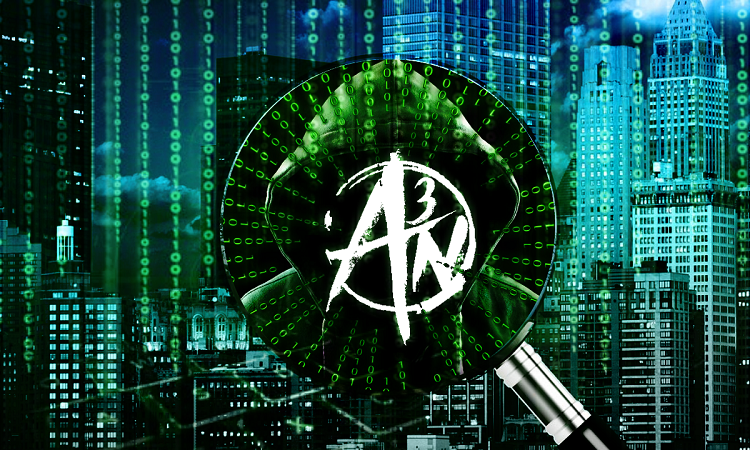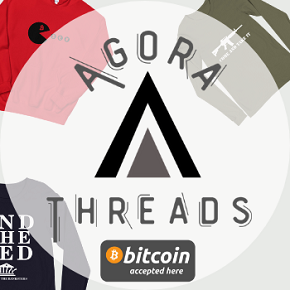
Piracy Is Not Theft, Private Keys Ain’t Property, and IP Is Garbage
TL;DR/Trigger Warning: The author is not pro-theft. The author likes and uses crypto and bitcoin. You cannot own an idea or information, and to use violence to claim ownership over such, is not a valid libertarian/anarchist/voluntaryist/agorist position. Pirates are cool.
Arrrgh! Piracy!
Sure, hanging out in a wooden ship with guns and knives at the ready, waiting for passing merchants and fishers to attack and pillage is a crime. That’s a direct violation of body and property…a complete non-starter for libertarians. But that’s not what this article is about. The piracy this article refers to is that hazy, modern non-definition of the term. The “YoU wOuLdN’t DoWnLOaD a CaR!” definition. You know the one. It’s the idea that some one person or group can somehow own information, readily available to anyone with a mind, computer, or other equipment to receive it and use it. It’s the idea that someone can own — and enforce ownership over, no less — general principles and realities of nature, freely available to all to be shaped, altered, adjusted, remembered, forgotten, spoken, rearranged, or copied.
For those who understand self-ownership and the definition of legitimate property that extends from it, it’s no problem to logically dismantle the idea of IP, or “intellectual property,” which says ideas and information can be owned. In a nutshell, IP law holds that someone can own information or ideas, and they can further use force and violence (usually by leveraging the state) to restrict how other individuals may use their own physical property (computers, hard drives, brains, bodies) to access, save, store, alter, view, or use said information or ideas themselves in some way.
There is a long and rich history of debate in libertarian circles about the validity/morality of intellectual property laws, copyrights, and patents. Wendy McElroy has written an excellent piece here describing her own journey away from IP, and how such influential figures as Samuel Edward Konkin III (SEKIII) helped her to arrive there. In my own case, I was initially very offended by the idea that somebody could “legitimately steal” my ideas, and that it was considered okay by anarchists. But I had no way to argue against the logic of my opponents:
“You have no right to tell me how I may not use my own computer, hard drives, disks, notepads, recording devices. To tell me I cannot copy, paste, and share the new ebook you’ve written is to claim ownership over the actions of my body and my physical property.”
I was check-mated. I had to accept this was right.
What Is Crime? What Is Immoral?
Before diving too deep into this, it’s necessary to define “crime.”
For the purposes of this article, crime is simply defined as violating the body or legitimate property of another individual. Legitimate property is defined as that which is acquired as a result of self-ownership. Each individual is the natural owner and highest authority over their body. Thus, property that has been acquired via that body, in homesteading, gathering or improvement of unowned resources, inheritance of such property from someone else, or via receiving payment in such, is considered legitimate. Statist conceptions of property like arbitrary borders, public ownership of land via violence-backed decrees, and taxation, are of course illegitimate. And so is IP.
As for the perceived morality of an action, that is a different and much more subjective issue. Buying someone’s newly released ebook or music, then sharing it to my website for all to freely see, copy, or download is not a violation of the non-aggression principle or the creator’s property. However, the action might certainly be viewed as unfriendly, unsavory, or immoral in some cases.
Imagine your best friend’s new band is trying to make it in the music industry. He secretly shows you some unreleased recordings they’ve been working on in the studio. You carefully commit the melodies and chord structures to memory while listening, go home, record your own versions, and then upload them to Soundcloud the next day, taking credit for the whole thing. Good luck with your friendship after that. You’ve just acted as a shady scumbag. But…you have not done anything that can be considered a crime or theft by libertarian standards. Your friend may have learned a lesson in trust, though.
Conversely, imagine the US government has discovered a new combination of natural herbs which can cure a disease. They have locked this information away behind non-disclosure agreements and patents, but an insider leaks it anyway. For me to then copy and disseminate this leaked “protected information” would likely be viewed as immoral by many. But many more might find the action absolutely heroic. So the issue we are really tackling here is not morality, but whether or not piracy violates the libertarian conception of property grounded in self-ownership. That is the only crime, and the only theft, in the strict libertarian/voluntaryist/anarchist legal sense. It all seems pretty cut and dry so far. But there are areas of extremely heated contention.
The Bitcoin Conundrum
Talks on morality and the legitimacy (or lack thereof) of IP inevitably lead to bitcoin and cryptocurrencies. If information cannot be owned, but only physical property, that means stumbling across someone’s private keys and slyly sweeping their wallet could be considered non-violent behavior.
I had a chance to do this recently when out to lunch with a friend. He had some questions about bitcoin, and had brought a paper wallet with him. This he placed face up, openly viewable on the table. The private key and QR code stood out magnificently, throbbing like a brilliant, glowing sun. I knew there was a decent chunk of money on the wallet, too, because he had told me as much. When my friend went to the bathroom, I could have easily scanned the QR code with my phone and been into some new bitcoin for myself in a matter of seconds. I could have done this while he was right there at the table, too, because he trusts me.
Though this would have been a highly immoral thing to do, it would not have been the same as taking a physical dollar lying there on the table. No breach of physical property need occur to scan a QR code. I simply take out my phone and scan it. For my friend to assert my doing so is stealing, he would have to assert a claim over my body and smartphone, prohibiting me from taking pictures while we eat in that public space, under threat of force. In other words, if it were stealing, he would have the right to knock my phone out of my hand or punch me in the face, claiming that the pattern of ink and sequence of numbers itself on the wallet was “his.”
Further, once it was in my phone (or even the phone of someone else in the restaurant haphazardly taking photos of their family or food), my friend could argue his property was now contained in both of our devices and demand them from us under threat of force! This behavior is of course a violation of the non-aggression principle, and while he does indeed own the physical paper and ink itself of the paper wallet, the patterned information is not something one can own.
Control vs. Ownership
After scanning my friend’s private key, his paper wallet still remains. The numbers, characters and codes thereupon have not been altered. If he argues that bitcoin is limited in supply, and therefore a scarce economic resource with value, he would next have to assert an ownership claim over every single computer that stores the bitcoin ledger, as his property — encrypted as it may be — would be stored on these computers. This leads to all kinds of problems and chaos, and is why the libertarian property norm’s simplicity is so critical to maximizing peace in society.
The issue with bitcoin and crypto is that patterned information can indeed be kept secret and controlled, but it cannot be owned like physical objects themselves. If it could, one could assert that because they own a red bicycle with painted yellow flowers, any other bicycle matching that description would also be theirs, because they own the idea or concept of the red and yellow painted pattern itself. Someone could think of an idea, and then justify violence against someone else who also happened to think of the same idea by chance. This is an ownership claim over the brain of another human. In other words, slavery.
Of course I did not sweep my friend’s bitcoin wallet that day, because I am not a damn thief.
By all common estimations, that is what doing so would have made me, as my friend alone held the unique information which allowed him use of those bitcoins. He practically owns that info, in other words, and I would have been practically stealing it. But this practical ownership ceases the moment that information is made openly available, as there is no way for him to assert ownership over the alphabet or numbers.
In the case of a physical dollar, as inflated and counterfeitable as it may be, there is no other physical dollar that is that specific one, acquired by his body. To take the dollar from my friend would have been to claim ownership over his physical property and thus, an extension of his body. He may have similarly worked hard for control of those bitcoin private keys, but at the end of the day, they are only information which is stored on the internet on a global public ledger. Encryption provides extremely reliable control of the exclusive digital resource, but to defend such information itself with violence — no matter the fortunes of economic power it may contain — would necessitate his claiming body ownership over me for simply seeing a string of numbers and this knowledge to act.
If a string of numbers cannot be used freely by anyone in action (no matter how unsavory the action may be), then the implication is that that particular string of numbers is itself owned. Which means the individual claiming ownership gets to dictate how others may use, write, or read numbers themselves. But a string of numbers is a concept. It’s not a concrete, one-of-a-kind string of molecules, like a rock or gold coin. The only way to take these is by way of physical violation.
If I had physically breached my friend’s phone or computer or home to get the bitcoin private keys, that would have definitely been a violation. This opens us up to some very uncomfortable things, though, which are likely the root of many people’s hesitancy to abandon IP altogether: if hackers can steal my identity or the digital info in my bank account, if people can destroy my reputation by sharing compromising information, or take pics of me naked in the bathroom with a high-powered camera lens, and do all sorts of other evil things, of what value is the libertarian property norm at all?
Free Markets: Dispute Resolution Magic
Luckily, anarchist and agorist societies built on the self-ownership axiom are free to develop their own policies on top of this property norm. Private property owners can choose, for example, to make hacking someone’s bank account a crime if all private property owners in the area to be governed by this non-hacking rule, as well as the bank itself, consent to it. If a property owner in the area does not consent, and rightly protests that it’s his damn computer and he can do whatever the hell he wants with it, even hacking, the free market of dispute resolution services and freedom of association/disassociation would sort things out.
This local bank account hacker would certainly be ostracized from commerce and social life if the dispute was not resolved. He would find himself shut off from the use of private roads to conduct his essential business. Private banks in the area would shun him, as having such a customer would not only be a huge liability, but would also prevent other customers from wanting to use their bank. Freedom is a beautifully efficient thing when it comes to resolution of problems. The local peeping Tom would similarly face severe difficulties in a society of folks who didn’t wish to be spied on. In the case of sweeping people’s irresponsibly placed bitcoin wallets, my welcome in that society would certainly wane quickly. The same way my real life friendship would be over if I had stolen my pal’s crypto the other day and he found out.
Freedom or Slavery — There Is No In-Between
As agorists, anarchists, voluntaryists, and libertarians (with a small “l”), there is only one road we can go down, and that is the road of complete and total freedom. Complete and total freedom, but not license to damage that complete and total freedom of others.
Nobody has a higher claim to my body, or the property that extends from it ,than I do. Nature attests to this self-ownership. Physics. Biology. Logic itself. It is not an opinion. The natural trajectory of the human being is to grow as an independent, enclosed system, a unit of agency and action. Nobody can blink my eyes for me more directly than I, without even thinking, by a firing of synapses in my brain, by the leverage of consciousness and will. To build a society on any other axiom than self-ownership, then, is to doom that society to some guaranteed level of dysfunction, conflict, and ultimately, failure.
Why? Because only individuals act — not abstractions, like societies — and individuals have unpredictably varying, virtually limitless and diverse wants, needs, goals, ambitions, and opinions. Attempts at arbitrary, centralized control of these individuals, and giving some groups like police or politicians “extra rights” to force their personal opinions on others, only potentiates greater conflict, and stifles the market.
Back in 2000, Lars Ulrich whined about some of these individuals choosing freely to ‘steal’ Metallica’s songs on Napster, and leveraged state violence to make sure he got paid for digital zeroes and ones that represented musical notes and silences between them which he claimed his band owned. This is hardly sensible, and is violence. Such claims of ownership over natural phenomena like sounds, a series of marks on paper, colors, ideas or information itself, are not logically justifiable from the anarchist/libertarian perspective.
Freedom results in the sharing of information which can both potentially help and harm mankind. Medicine, censored historical accounts, how-to videos, bigoted propaganda, etc. The internet makes policing such things practically impossible. As such, the two roads that are left are 1. violently controlling people and how they use their bodies and property and 2. non-violence.
That in view…Protect your bitcoins, pull down the shades, knock the guy out that attacks you at the bar for no reason. Heck, make a contract with your neighbor to never tell anyone your secret apple pie recipe. As long as the contract is only binding between you and the neighbor, and is mutually consensual, it’s completely legitimate. The moment, however, you threaten someone with physical violence for overhearing the recipe at a park, whistling a tune on video, saying something offensive, or downloading a movie from the internet, is the moment you become a tyrant dead set against liberty, freedom, and peace.
Endnote: Metaphysically speaking, things like strings of numbers, words, ideas, etc., may indeed be interpreted by some as “proper to” certain individuals in an abstract sense, by way of their intentionality and work toward seeing, finding, creating, or obtaining such things. This is why most would agree it is immoral to sweep a friend’s bitcoin wallet. However, in developing a NAP-grounded legal code to minimize violent conflict in a given society, such concepts are practically useless, and result in chaos and systematic violence against the individual. This is why physical objects (arrangements of molecules) are necessarily differentiated from ideas (arrangements of concepts).










2 comments
JdL
April 09, 2021Complete and total nonsense. The author clearly has no desire to be productive himself and wants to subsist by stealing the productive work of others. In a world where IP is legally abolished, just try to imagine a Steven Spielberg spending $100 million on a blockbuster movie, only to watch as $1.00 DVD rip-offs are hawked on street corners the day after the movie opens. In that world, blockbuster movies will no longer be made, and Graham Smith will stand with his mouth open, unable to comprehend what has happened.
Luckily for the world, idiotic ideas like Mr. Smith’s are universally rejected by anyone with half a brain.
GregH
April 10, 2021Well-reasoned and persuasive comment, JdL. Just kidding! It was actually just an Ad Hominem argument — you attacked the person making the statement rather than the statement itself. Not very effective, please try again.